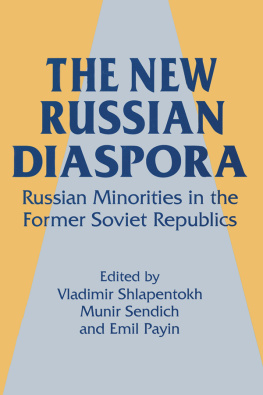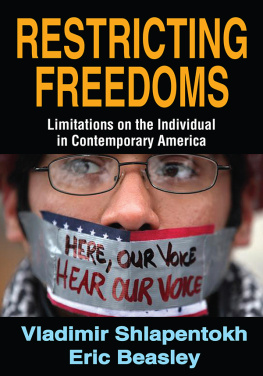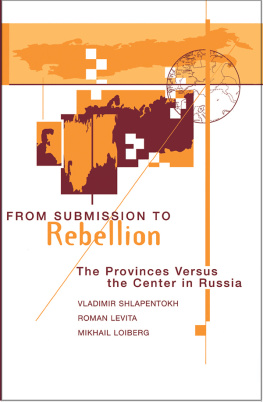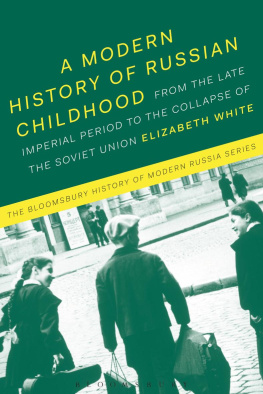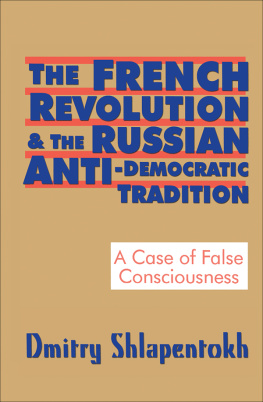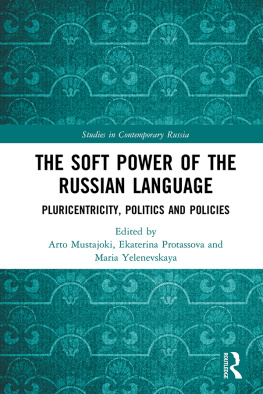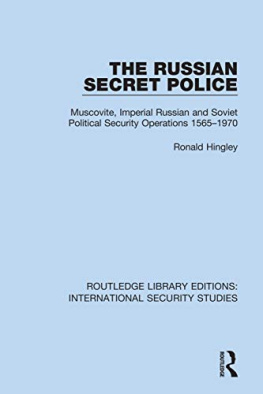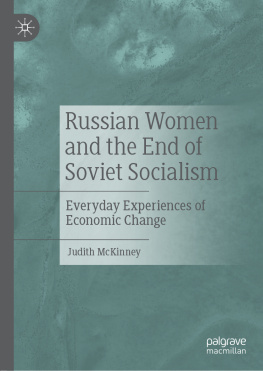THE NEW RUSSIAN DIASPORA
Russian Minorities in the Former Soviet Republics
In the wake of the USSRs collapse, more than 25 million Russians found themselves living outside Russian territory. Just as uncertain as their citizenship status was the role they would play in the futurewhether as homeless refugees in an unstable Russia or as a minority group of uncertain loyalty in other former Soviet republics.
This volume, prepared under the sponsorship of the Kennan Institute for Advanced Russian Studies, offers a comprehensive and amply documented examination of these questions.
THE NEW RUSSIAN DIASPORA
Russian Minorities in the Former Soviet Republics
Edited by
Vladimir Shlapentokh
Munir Sendich
and Emil Payin
First published 1994 by M.E. Sharpe
Published 2015 by Routledge
2 Park Square, Milton Park, Abingdon, Oxon OX14 4RN
711 Third Avenue, New York, NY 10017, USA
Routledge is an imprint of the Taylor & Francis Group, an informa business
Copyright 1994 Taylor & Francis. All rights reserved.
No part of this book may be reprinted or reproduced or utilised in any form or by any electronic, mechanical, or other means, now known or hereafter invented, including photocopying and recording, or in any information storage or retrieval system, without permission in writing from the publishers.
Notices
No responsibility is assumed by the publisher for any injury and/or damage to persons or property as a matter of products liability, negligence or otherwise, or from any use of operation of any methods, products, instructions or ideas contained in the material herein.
Practitioners and researchers must always rely on their own experience and knowledge in evaluating and using any information, methods, compounds, or experiments described herein. In using such information or methods they should be mindful of their own safety and the safety of others, including parties for whom they have a professional responsibility.
Product or corporate names may be trademarks or registered trademarks, and are used only for identification and explanation without intent to infringe.
Library of Congress Cataloging-in-Publication Data
The New Russian diaspora : Russian minorities in the
former Soviet republics / edited by Vladimir Shlapentokh,
Munir Sendich, and Emil Payin.
p. cm.
Includes bibliographical references and index.
ISBN 1-56324-335-0 ISBN 1-56324-336-9
1. RussiansFormer Soviet republics.
2. Former Soviet republicsEmigration and immigration.
3. ImmigrantsRussia (Federation).
I. Shlapentokh, Vladimir. II. Sendich, Munir. III. Payin, Emil.
DK35.5N48 1994
305.89171047dc20 94-727
CIP
ISBN 13: 9781563243363 (pbk)
ISBN 13: 9781563243356 (hbk)
Contents
Roman Levita and Mikhail Loiberg
Emil Payin
Ramazan Abdulatipov
Leokadia Drobizheva
Evgenii Golovakha, Natalia Panina, and Nikolai Churilov
Vladimir Solonar and Vladimir Bruter
Vladis Gaidys
Sergei Nikolaev
Galina Soldatova and Irina Dementeva
Tatiana Marchenko
Vladimir Mukomel
Lev Gudkov
Aleksandr Susokolov
Natalia Dinello
Emil Payin
Index
Vladimir Shlapentokh is professor of sociology at Michigan State University.
Munir Sendich is professor of literature at Michigan State University.
Emil Payin is director of the Department of Interethnic Relations under the president of the Russian Federation and is a member of the Presidential Council.
Ramazan Abdulatipov is vice chairman of the Federal Council of the Russian Federation.
Vladimir Bruter is director of the firm Agroinvest, Kishinev, Moldova.
Nikolai Churilov is president of the firm Sotsis-Gallup in Kiev, Ukraine.
Irina Dementeva is a journalist with the newspaper Izvestiia.
Natalia Dinello is a graduate student in sociology at the University of Pittsburgh.
Leokadia Drobizheva is head of the department of the social psychology of interethnic relations at the Institute of Ethnology and Anthropology, Russian Academy of Sciences.
Vladis Gaidys is director of the Market and Opinion Research Center in Vilnius, Lithuania.
Evgenii Golovakha is head of the department of social psychology at the Institute of Sociology, Ukrainian Academy of Sciences.
Lev Gudkov is head of the department of methodology of public opinion research at the All-Russian Center for the Study of Public Opinion, Moscow.
Roman Levita is at the Central Economic-Mathematical Institute, Russian Academy of Sciences, Moscow.
Mikhail Loiberg is a professor at the Moscow Open University.
Tatiana Marchenko is a senior fellow in the Institute of Socioeconomic Problems of the Population, Russian Academy of Sciences.
Vladimir Mukomel is chief analyst in the Department of Interethnic Relations under the president of the Russian Federation.
Sergei Nikolaev is chairman of the department of sociology at Tashkent University in Uzbekistan.
Natalia Panina is head of the department of methodology of sociological research, Institute of Sociology, Ukrainian Academy of Sciences.
Galina Soldatova is a fellow of the Institute of Ethnology and Anthropology, Russian Academy of Sciences.
Vladimir Solonar is a deputy of the Moldova parliament and the head of the parliaments Committee on Human Rights and Ethnic Relations.
Aleksandr Susokolov is head of the department of ethnic demography and sociology at the Institute of Education, Moscow.
It is clear that by 198990, Russian minorities in the republics had become one of the most crucial political agents in the process that ultimately led to the death of the Soviet empire and the turbulent events that ensued on the territory of the former Soviet Union.
Prior to 1987, Russian minorities within other national entities had not been much in evidence as independent political agents. In the 1970s, of course, in association with the growth of nationalist sentiments in certain organizations and the increasing autonomy of local officials, the Russians had already begun to experience the eclipse of their Big Brother role and even discern evidence of subtle discrimination. But serious efforts on the part of Ukrainian nationalists to strengthen their position (recall the arrests that took place in Kiev and Lvov, the Ivan Dziuba affair, the persecution of the poet Lina Kostenko, and other incidents) were ruthlessly crushed by Brezhnev.
At first Russian minorities reacted with surprise to the growth after 1985 of local nationalism which was, after all, unprecedented in Soviet history. Then came the realization that their lives in the far-flung regions where many of them had been born or had lived for decades would never be the same. New processes required of every Russian a reevaluation of fundamental conditions that most had never even questioned. This secondary ideologization of the Russian population (which took place in one form or another among all Soviet people, even the most politically naive) made the differentiation of this minority inevitable. This happened very differently in various regions, depending on specific conditions.

